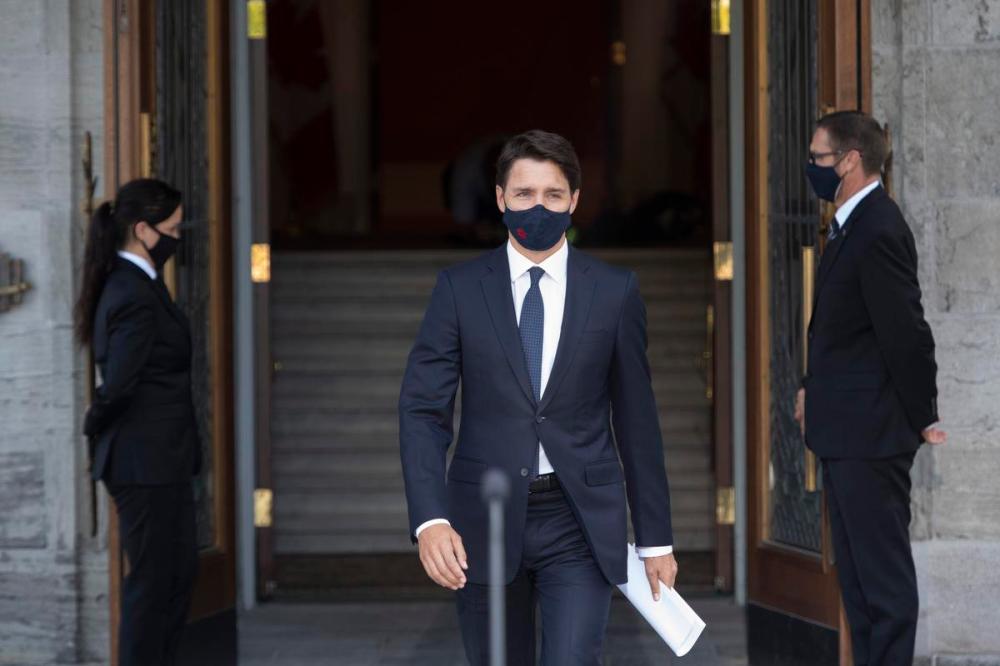Will voters punish Justin Trudeau’s Liberals for calling an opportunistically timed election?
Advertisement
Read this article for free:
or
Already have an account? Log in here »
To continue reading, please subscribe:
Monthly Digital Subscription
$1 per week for 24 weeks*
- Enjoy unlimited reading on winnipegfreepress.com
- Read the E-Edition, our digital replica newspaper
- Access News Break, our award-winning app
- Play interactive puzzles
*Billed as $4.00 plus GST every four weeks. After 24 weeks, price increases to the regular rate of $19.00 plus GST every four weeks. Offer available to new and qualified returning subscribers only. Cancel any time.
Monthly Digital Subscription
$4.75/week*
- Enjoy unlimited reading on winnipegfreepress.com
- Read the E-Edition, our digital replica newspaper
- Access News Break, our award-winning app
- Play interactive puzzles
*Billed as $19 plus GST every four weeks. Cancel any time.
To continue reading, please subscribe:
Add Free Press access to your Brandon Sun subscription for only an additional
$1 for the first 4 weeks*
*Your next subscription payment will increase by $1.00 and you will be charged $16.99 plus GST for four weeks. After four weeks, your payment will increase to $23.99 plus GST every four weeks.
Read unlimited articles for free today:
or
Already have an account? Log in here »
Hey there, time traveller!
This article was published 23/08/2021 (1529 days ago), so information in it may no longer be current.
Last week, Liberal Leader Justin Trudeau met with the Governor General to request that she dissolve Parliament and call a federal election. Most commentators criticized the prime minister’s request, suggesting it was unnecessary and that it violated the spirit of Canada’s fixed election law.
NDP Leader Jagmeet Singh went even further, arguing that the Governor General should refuse the Trudeau’s request because it was not safe to hold a federal election during what is shaping up to be the fourth wave of the COVID-19 pandemic.
Why did the prime minister decide to ask the Governor General to dissolve Parliament and call an election only 22 months into his minority government’s mandate?

Like most others before him, Trudeau appears to be using his control over election timing in hopes of translating his party’s seven-point lead in the polls and the Conservative party’s lack of election readiness into a majority government.
Based on recent commentary by journalists, party strategists and leaders, one might assume Canadians will punish Trudeau for his use of the election timing power for political gains. There doesn’t seem to be any real, justifiable reason for calling an election this fall, as Parliament seemed to be functioning quite well in terms of accomplishing the government’s legislative agenda.
According to Polimeter, the Liberals kept or partially kept 53 per cent of their promises and broke five per cent, with 21 per cent in progress and 21 per cent not yet rated. That’s a pretty solid record in terms of promise fulfilment for a minority government, and suggests this Parliament was not dysfunctional but rather working as it should.
Will voters punish the Liberal party for this early and seemingly opportunistic election call?
In our recent book, we used an online experiment to test whether governments are punished for calling opportunistically timed elections. Our results showed that the probability of voting for the incumbent party increased by as much as nine percentage points when the governing party exercised its election timing power to take advantage of positive public support. These findings are consistent with other studies that have examined the experiences of incumbent parties at the federal and provincial levels in Canada, and cross-nationally. In the case of the latter, incumbent vote and seat share increased by eight and 10 percentage points, respectively, when parties opportunistically timed elections.
Accordingly, the Liberals may indeed benefit from the early election call — although some may question whether public support for the federal Liberals has been positive, one of the necessary components observed in our experimental work.
And, of course, a lot can happen between now and election day. As our book shows, campaigns can have a powerful effect on how people vote. Factors such as campaign tone, star candidates and endorsements, for example, can influence vote choice and, ultimately, who forms the next federal government.
Christopher Alcantara and Jason Roy are co-authors of “Winning and Keeping Power in Canadian Politics,” published in 2020 by University of Toronto Press.

















